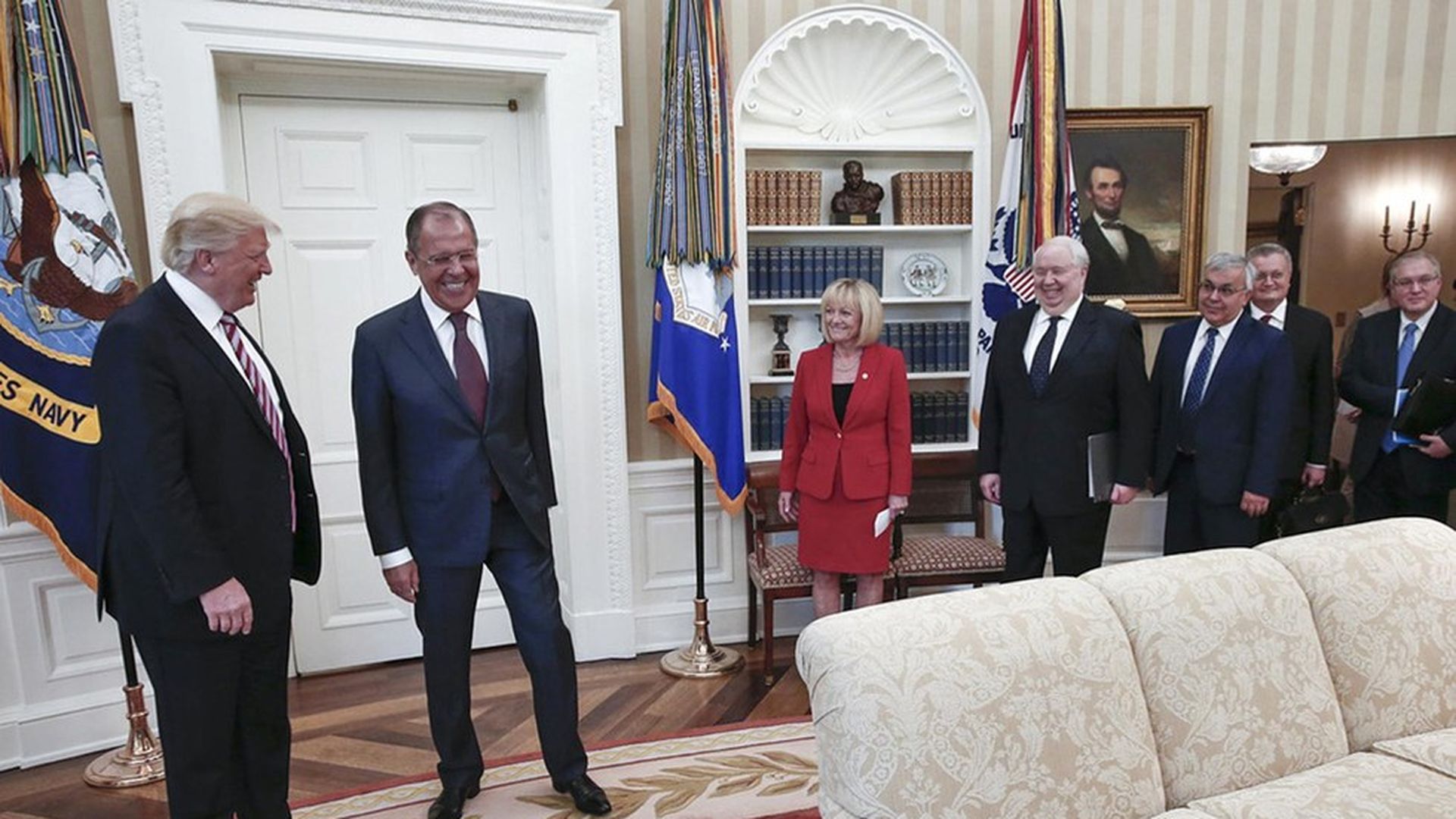Russian Roulette: what the leak revealed about Trump
Add Axios as your preferred source to
see more of our stories on Google.

Russian Foreign Ministry Photo / AP
After the Washington Post posted its bombshell that President Trump "revealed highly classified ['code-word'] information to the Russian foreign minister and ambassador in a White House meeting last week," the White House issued a series of carefully worded denials — "playing word games," according to Greg Miller, one of the Post authors, along with Greg Jaffe.
Why it matters: Several national-security experts told me that lives could well be lost as a result of an ISIS mole hunt that's sure to follow. And a key ally (the name of the country was withheld by the Post at the White House's request, but it's apparently in the Middle East) may deny future intelligence as a result of the episode.
All this as Trump is about to head out on his first international trip, including stops in Israel and Saudi Arabia.
I talked to several White House officials last night, and their denials hinge on the argument that the president has broad authority to declassify, so whatever he says is by definition unclassified.
National Security Adviser H.R. McMaster, who was in the meeting with the Russians, said in the White House driveway: "At no time ... were intelligence sources or methods discussed. And the president did not disclose any military operations that were not already publicly known."
But the report didn't say they were. The Post's Aaron Blake reads between the lines: "[T]he report states clearly only that Trump discussed an Islamic State plot and the city where the plot was detected by an intelligence-gathering partner. Officials worried that this information could lead to the discovery of the methods and sources involved, but it didn't say Trump discussed them."
Be smart: what the disclosure tells us about President Trump:
- This is the price of inexperience. A top Obama national-security official told me: "He just didn't know any better. It's not his background. I don't think there was any malicious intent — it's not the world he comes from."
- He isn't learning fast enough on the job. A Republican very close to the West Wing said: "The president has no context for operating in the environment he's currently in — as head of state and head of government of the most powerful enterprise in all of history. And because he has no context, he's not good at compartmentalizing information."
- It's illuminating about how he thinks of Russia: He wasn't on his guard, wary that Russia can be an adversary with interests that differ notably from those of the U.S.
- He's super-loose at high-stakes moments. Allied governments tell us of shocking asides he makes in meetings. One West Wing visitor told me: "He just rambles. ... He doesn't care."
- He has trouble putting together two good days. Some of his friends tell me they'd now settle for one.
Read next: The White House response, a timeline.
